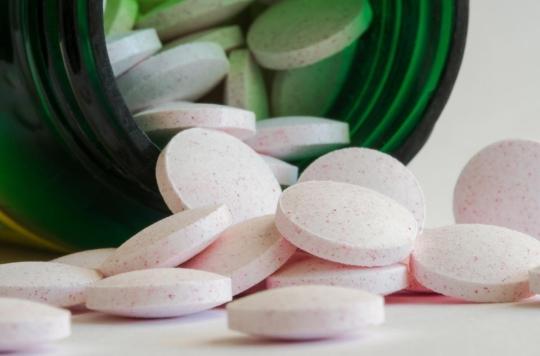In ten years, the number of melatonin-related poisonings has increased by more than 500% among children in the United States.

- In 82% of cases, the children had no symptoms related to the accidental consumption of melatonin.
- Melatonin-based food supplements are sold in the form of tablets, capsules, liquids and even gummies.
- The National Health Security Agency advises pregnant or breastfeeding women, children and adolescents to consume it without medical advice.
The food supplements market is doing well in France. Between 2019 and 2021, its value increased by 12%, with more than 2.3 billion euros in turnover last year, according to the figures of Synadiet, the national union of food supplements. These products, sold without a prescription, can be consumed for various reasons: improving digestion, reducing stress, facilitating weight loss, etc. But if they are beneficial for adults, they can be dangerous for children. According to one study carried out by the Centers for Disease Control and Prevention, the American public health organization, the poisoning of children, because of products containing melatonin, have exploded in the last ten years.
A popular product in the United States
Melatonin is a hormone naturally secreted by the body, which regulates sleep-wake cycles. It is used as an active ingredient in many food supplements against sleep disorders. In the United States, these products are increasingly popular: between 2016 and 2020, sales increased from 285 to 821 million dollars. This high consumption in the country increases the risk of poisoning among the youngest: in 2020, melatonin was the substance most frequently ingested by children, among all those referenced by poison control centers, with an increase in cases of 530 % in ten years.
Accidental ingestions, and often without symptoms
This study was carried out between January 2012 and December 2021, among young people under the age of 19. In total, more than 260,000 pediatric melatonin ingestions have been recorded, 94% of which were accidental. For five children this required mechanical ventilation, two died. 27,000 children suffered from gastrointestinal, cardiovascular or neurological disorders.
An increase linked to the pandemic?
“This could be linked to increased availability of melatonin during the pandemic as children spent more time at home due to lockdowns and school closures.”, say the authors. They recall that sleep disorders increased during the pandemic, and probably contributed to accentuating the presence of melatonin in homes. According to them, it is important that health professionals remind parents to store melatonin in secure places, not accessible to children.

















